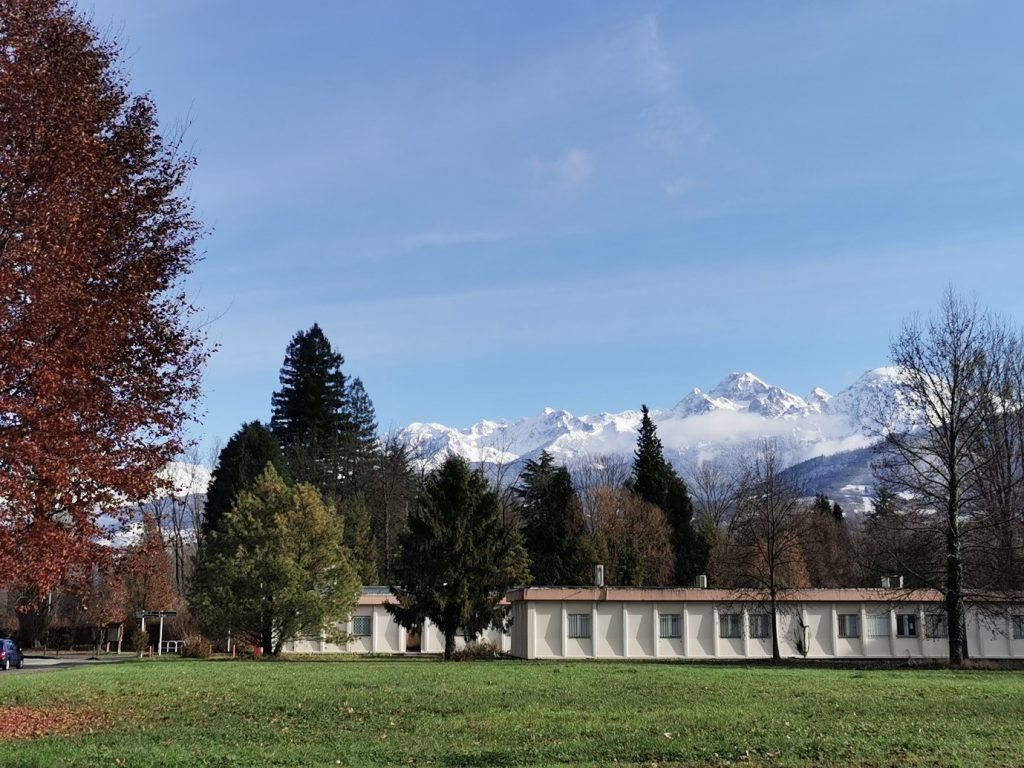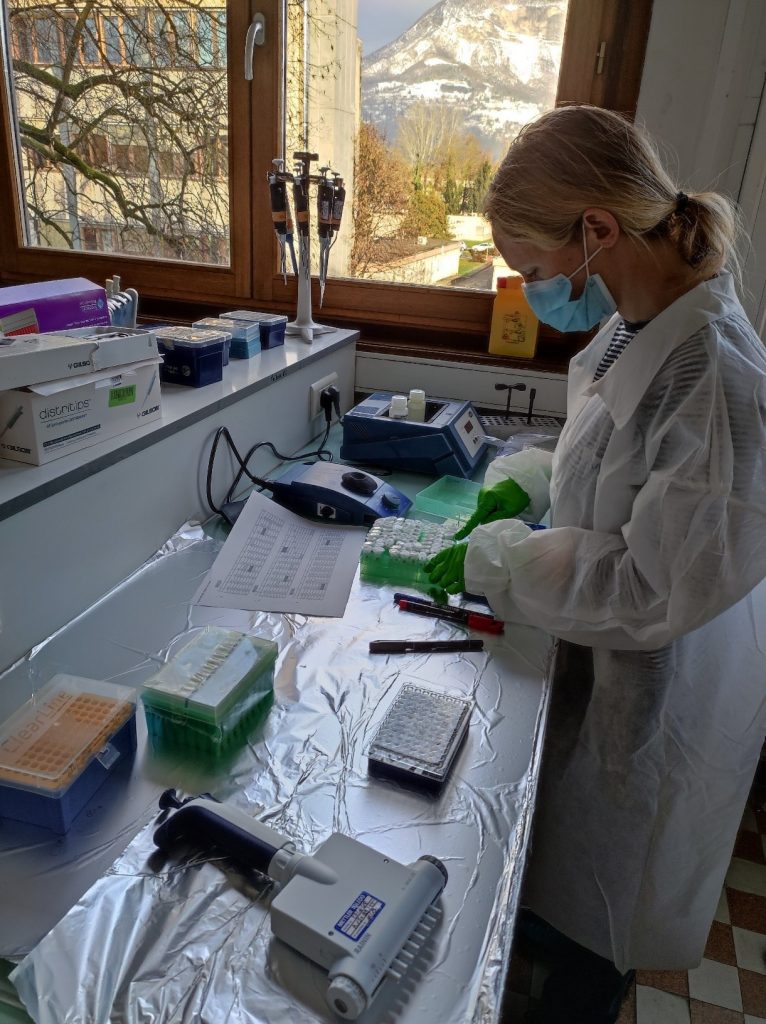LIFE Lynx genetics team from Biotechnical faculty in Ljubljana visited the LECA Institute (Laboratorie d’Ecologie Alpine) in Grenoble, which is one of the main genetic laboratories in Europe working with environmental DNA (samples of water and soil) and large carnivore DNA.
For three weeks, both teams were working together on a new method to learn how to extract the DNA from environmental samples, such as snow and water. With this method, lynx DNA could be extracted from snow tracking samples, so the LIFE Lynx team is very excited to test it at home. The LECA team also has a lot of experience with high throughput sequencing of noninvasive genetic samples and analyzing the diet of animals with metabarcoding, so the bioinformaticians from both teams were also analyzing the sequencing data and optimizing the bioinformatic pipelines.
While watching the snowy French mountains through the office windows, we were already thinking of new methods we could try on our own in researching the lynx in the Dinarics and SE Alps.

Snowy French mountains through the office windows of the LECA institute. Photo: Elena Pazhenkova

Working in the LECA laboratory. Photo: Marta De Barba
